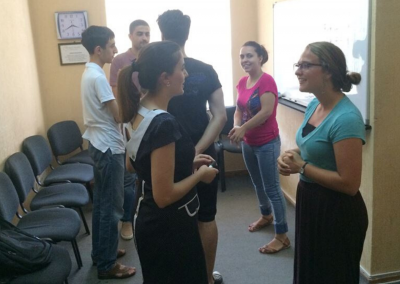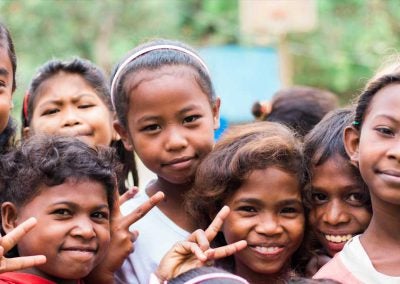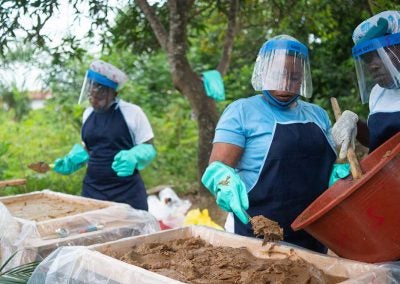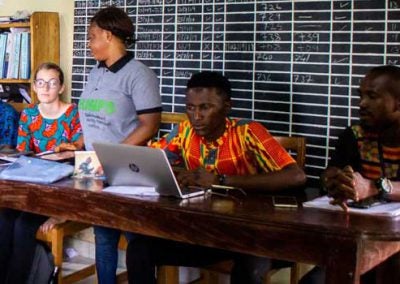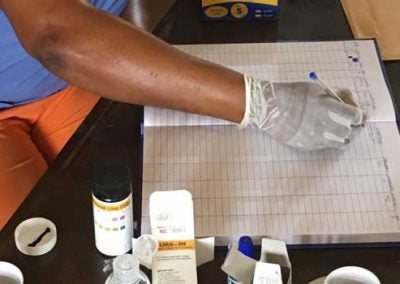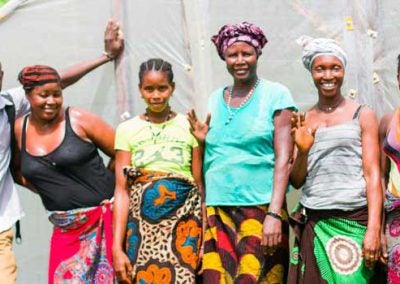Enable the Children
Poor health care contributes to high rates of physical and mental disability. Widespread misunderstanding and stigma make children living with disabilities especially vulnerable and seen as a curse.
Project Information
Supporting children living with disabilities
Poor health care contributes to high rates of physical and mental disability in Sierra Leone. Unfortunately, a widespread cultural misunderstanding of disability, complicated by the lack of health care or other public support services, makes children living with physical and mental disabilities some of the world’s most vulnerable children.
Extensive poverty, traditional beliefs, and illiteracy often leave the affected children rejected or abandoned and seen as a curse on their family.
That’s where WHI’s Enable the Children (ETC) program comes in. ETC is a team of local and expatriate staff who have provided Physiotherapy and Occupational Therapy, care, and support services to over 1,000 children living with disabilities in Freetown, Sierra Leone. More than half of the children enrolled in ETC suffer from cerebral palsy; others cope with acquired brain injury, muscular dystrophy, orthopedic challenges, and many more. Children with Down syndrome or autism also face discrimination and limited opportunities.
Project Goals
- To enable children living with disabilities to be included, loved, and valued in their families and communities, ensuring a good quality of life
- To empower families and communities to provide the necessary physical and developmental support so that their children living with disabilities can have a good quality of life
Expected Outcomes
- Decreased discrimination against children and adults living with disabilities
- Families and caregivers trained to support children with disabilities using play, developmental positioning, and feeding support
- Strengthened community and national support for families with children living with a disability
- School and employment opportunities accessible to the children and their families
Rehabilitation therapists were trained on in-home based therapy exercises
Children with disabilities were provided with specialized equipment
pieces of equipment were provided to help children improve their functional ability in 2018
How It Works
ETC staff visit patients in their homes and teaches families and caregivers how to support children with disabilities using play, developmental positioning, and feeding support. This allows families the opportunity to learn to provide at-home care and treatment to children in a manner that is sustainable in their everyday lives. ETC also provides support for the family unit as they learn to look after the child and provide a loving, nurturing home life. As cultural beliefs lead many mothers to place blame upon themselves when a child is born with a disability, ETC works with mothers so they understand each child’s medical case and to reassure parents that they’ve done nothing wrong. ETC also addresses large-scale stigma in the communities and helps families connect with and support one another.
Additionally, ETC’s school sponsorship initiative supports school fees and uniforms, which afford children the otherwise unlikely opportunity to attend school. The program also provides small-business start-up grants to families who’ve had to change their pattern of work to allow for care to be provided for the child at home. Finally, ETC works with local carpenters, tailors, and technicians to provide specialized equipment for patients.






